|
Ever since I was a little kid, I have loved Midnight Mass. As a student of the Church's liturgy, some of the externals certainly contribute to this: darkness, incense, singing, a full church. Yesterday was no different. The outside air was cold, the church full, the music beautiful as always. With the exception of a blaring fire alarm because of of a smoking thurible being placed too close to a sensitive smoke detector, Mass went off without a hitch!
But why do we gather in the middle of the night on one of the longest nights of the year? Why do we celebrate this great solemnity year after year? What can we continue to learn from "Jesus Christ, eternal God and Son of the eternal Father...born in Bethlehem of Judea of the Virgin Mary" (Proclamation of the Birth of Christ)? The collect (opening prayer) from the "Mass during the Night" beautifully illustrates the reason that we gather on that holy night: O God, who have made this most sacred night radiant with the splendor of the true light, grant, we pray, that we, who have known the mysteries of his light on earth, may also delight in his gladness in heaven. God's light came to earth as an infant over two thousand years ago. The Incarnation is miracle and pure gift, but it is also human. "Et Verbum caro factum est et habitavit in nobis—And the Word became flesh and dwelt among us." The Word, Christ himself, was, as the Nicene Creed says, "incarnate of the Virgin Mary and became man." In his Midnight Mass homily, Pope Francis said, "The grace which was revealed in our world is Jesus, born of the Virgin Mary, true man and true God. He has entered our history; he has shared our journey." Emmanuel, God with us, was born in a manger fully human and fully God. Jesus Christ is not some distant, historical figure. He experienced the joys and sorrows of daily living just as we do today, and is as alive today as he was in Bethlehem two thousand years ago. As we celebrate the octave of Christmas, let us not forget the great miracle of the Incarnation of the light of the world. "The Word became flesh, and we have seen his glory" (John 1:14). May the glory and joy of Christmas remain alive in our hearts and in our lives today and every day. Alex R. Boucher is the Program & Operations Manager for the Catholic Apostolate Center. Follow Alex on Twitter at @AlexBoucher.
2 Comments
I have a very distinct memory from when I was a little girl (okay, twelve years old…) of anxiously awaiting the Christmas morning tradition of opening up Christmas presents. I was so excited that instead of waiting for the parental mandated 6:15am wake up call, I did it my way. I changed the time on my alarm clock, woke up my whole family and demanded that we start Christmas a little early. This moment of impatience several years ago plays into a much larger reality about this world that we live in – we are so anxious to get to the final destination as quickly as possible that we forget that the journey is just as important as the destination.
That is what Advent is – the journey to Christmas. The word itself comes from the Latin word adventus, which means “coming.” In the midst of the craziness of the holiday season–peppermint mochas and Hallmark Christmas movies included—it is natural to feel like these weeks leading up to Christmas are all about the countdown, and not about the coming. Just as I was all too anxious and turned the clock forward to get my Christmas day started, it is easy to wish away these days of simple waiting and trade them in for the hustle and bustle of Christmas Day. In an effort to more fully appreciate this journey to December 25th, it is necessary to find ways to live out this coming in our own lives. Practically, what does this mean? It means recognizing that the Advent journey requires silence, prayer and most importantly perseverance. Although everyone loves a good peppermint mocha, it is through these three things that we can ready the way for the coming of our Lord at Christmas. Although seemingly impossible, finding silence among the chaos of these days can be done in simple ways–whether it is turning off that Josh Groban Christmas song that has been playing on repeat in the car or taking the chance to catch one’s breath between glasses of eggnog at a family Christmas party. Finding times for prayer can be as unassuming as waking up five minutes early to read that day’s Mass readings or saying a Hail Mary when we are stressed. Lastly, perseverance is not only a necessity of the Christian life, but a necessary part of a peace-filled Advent. The most beautiful part of these days before Christmas is that the destination of our journey is not a rigged alarm, but God Himself in the unassuming form of a baby. This innocence of the baby Jesus reminds us that this season is a time for simple acts of faith, acts of faith that both allow us to appreciate the gift that is waiting for us and the journey that makes it possible. Lauren Scharmer is a senior at The Catholic University of America and is active in retreat and youth ministry in both the Archdiocese of Washington and the Diocese of Arlington. The lights began to dim as I settled into my seat and a hush fell over the crowd. Sounds began to emerge from the pit in front of me as various instruments were heard tuning. Then the auditorium erupted into applause as the conductor popped into view, acknowledged the audience and struck the downbeat. With that, my first professional opera viewing experience was underway!
I recently had the opportunity to see the Washington National Opera’s staging of Giuseppe Verdi’s La forza del destino (or, The Force of Destiny, for those of us who don’t know Italian). The story follows a wealthy noble family who is struck with tragedy when the lover of the family’s daughter accidentally kills the father when a fight erupts between lover and father. The ensuing story tells how the daughter, Donna Leonora, copes with the tragedy while Leonora’s brother seeks revenge for his father’s untimely death. One of the most moving parts of the evening was when Donna Leonora, tired and distraught after running away from home, seeks out the solace of the nearby religious community. With her brother seeking to kill her, a fiancée who is now a murderer, and a father who has died, Leonora comes asking the Abbot for peace and God’s mercy. To make a long story short, the Abbot listens to Leonora, blesses her and offers her the opportunity to kneel before the cross and pray with the Blessed Sacrament. He then invites her to join their community upon which Leonora sings: Eternal Father, thy grace smiles on the rejected one, an uncommon happiness fill me: I am blessed. I feel my heart regenerate within me; Rejoice O angels, God has forgiven me! While this portrayal was dramatized, it’s no doubt that the Church can still be place of healing and restoration in our world today, especially for those who have walked away from their faith, have suffered a great deal or are simply in need of God’s mercy and peace, just like Donna Leonora. During this scene I was reminded of the words of Pope Francis in his recent interview with the Italian Jesuit journal, La Civilta Cattolica, in which he says: …the thing the church needs most today is the ability to heal wounds and to warm the hearts of the faithful; it needs nearness, proximity. I see the church as a field hospital after battle. It is useless to ask a seriously injured person if he has high cholesterol and about the level of his blood sugars! You have to heal his wounds. Then we can talk about everything else…The most important thing is the first proclamation: Jesus Christ has saved you. And the ministers of the church must be ministers of mercy above all. As apostles of Christ in today’s world we are called to help spread God’s mercy and rekindle His love to those who need it most in our world. We all know someone who is in need of God’s mercy and we can be the medics that Pope Francis speaks of in the lines above. Certainly, transformations might not be as dramatic as seen in the movies, on stage or even in stories we hear from the lives of the saints, but even the smallest ways in which we can be ambassadors of Christ’s mercy can make a world of difference for those who need it most. David Burkey is the Communications Coordinator for the Catholic Apostolate Center While we cannot have the Church without having community, I have realized that a lot of my spirituality also depends on my own initiative and personal relationship with God. I am learning to see God everywhere in the world, but particularly in frequent mass, exercise, music, the Rosary, art and silence. As persons of faith in our society, it is important to have strong foundations that enable us spread the love of our work to those most in need.
Here are a few elements I find crucial: 1. Prayer - Prayer is the foundation of faith and spirituality. The beauty of prayer? There’s no right or wrong way to pray. While some of us turn to more traditional forms of prayer such as praying the Rosary or praying with Scripture, exercise, meditation, writing or service work can also be forms of prayer. Every morning, I like to say a prayer offering up everything I will do, think and feel up to God. This even includes my weaknesses and anxieties. The key is to set aside regular time for prayer in whatever way you most connect with. What kind of time do you have? Do you have 20 minutes? 10? Five? One? Whatever time you can, set that aside for regular prayer. See what happens. Spiritual Tip: Have a smart phone? Check out the “pray as you go” section of the free Laudate app. It’s an Ignatian podcast of daily scripture, song and reflection that is only ten to fifteen minutes long and is great to listen to on your commute to work! 2. Silence - This one is often overlooked….or seemingly impossible. But silence enables us to truly think and to let those thoughts mature. Just like prayer, think about how much time you can set aside for some moments of silence, even if that just means closing your eyes and taking a few deep breaths during your work day. Spiritual Tip: “We need to find God, and he cannot be found in noise and restlessness. God is the friend of silence. See how nature - trees, flowers, grass- grows in silence; see the stars, the moon and the sun, how they move in silence... We need silence to be able to touch souls.” -Mother Teresa 3. Spiritual direction - I like to think of a spiritual director as a type of faith-based therapist. I’ve learned that I can think and pray and meditate all I want, but it’s helpful to have an outside perspective that enables me to see outside of myself. This can be a priest, religious, trained spiritual director or leader in your community. It’s helpful to have a spiritual director you trust that isn’t necessarily a friend or family member. That way, this person can bring in a fresh, outside perspective to guide and direct you along your spiritual journey. Spiritual Tip: Browse spiritual directors they way you would browse for shoes for an important occasion. Spiritual directors, like shoes, are not “one size fits all,” so be sure to have some preliminary discussions with several people before settling on one. 4. Retreats - It’s typically recommended that we do a retreat per year. Retreats are exactly what the name implies: a retreat from the world, from our lives or from our typical schedules. They are important in allowing us to focus our thoughts and energy on the divine in a way that our regular schedule hardly permits. The beauty of retreats is that they can vary greatly. There are silent retreats, community retreats, family retreats, staff retreats, yoga retreats, weekend retreats, day retreats—you name it. Think about what one may be right for you at a certain time. Spiritual Tip: This once a year thing sounding impossible with your schedule? Try a daily three minute retreat from Loyola Press by clicking here. 5. Eat, sleep and exercise - Seriously. God gave us minds and bodies as well as spirits. So make sure to take care of all of you! We can’t be of much help to others if we ourselves are not being taken care of. Shut off your laptop or TV at least 30 minutes before getting to bed; studies show that the light from these screens can keep you up or leave you restless. Read a book instead. Take a ten or fifteen minute walk during lunch. Add some more green to your life. Recycle. Do whatever you need to feel rested and taken care of. Think of the phrase, “Behold God beholding you…and smiling.” Rest with that. We are the Church. And we are called to support, love and stand with others. Our work as people of faith enables us to do this in unique and beautiful ways, but we need to make sure we are healthy and strong in our own spiritual lives in order to truly be living, breathing instruments of God. How will you commit to living intentionally today? Kate Flannery is a former Catholic Volunteer Network Communications intern. This post was originally written and posted on the Catholic Volunteer Network Blog. For more Catholic Volunteer Blog Posts please visit the CVN Blog. The Catholic Apostolate Center is proud to partner with the Catholic Volunteer Network by developing faith formation resources for volunteers and alumni, assisting in its efforts to provide and advocate for faith-based volunteerism and collaborate in many additional ways. There’s a line from Coldplay’s “The Scientist” that pops in my head from time to time. Nothing seems to prompt it. The line just comes: “Questions of science, science and progress, do not speak as loud as my heart.”
As I sit with the words now, I notice why they speak to me. A lover of math and physics, questions of science have engaged me from the very beginning. At first it was dinosaurs, fossils, rocks, mountains, stars, planets – big, physical, earthy things. As I grew and learned through the complicated processes of science, the whole world became an infinitely complicated, continuously unfolding window into God’s creative mind. From the quantum entanglement of paired photon particles to the unimaginably long process of creation through evolution that could selectively form the creatures of this mysterious and complicated world, I stand in complete, utter fascination. Yet, as captivated as I am by science, its questions are not enough. For me, asking the probing questions of science isn’t about head knowledge, it’s about heart knowledge. The created world and all its mysteries, when uncovered and understood, stir in me deeper mysteries, mysteries of a different category and question. At some point I moved beyond asking what and how to asking why and what does it mean. As we celebrated Pentecost, the receiving of the Holy Spirit, I was reminded that the gifts we have been given are of both head knowledge and heart knowledge. Wisdom, understanding, knowledge, counsel, strength, piety, and fear of the Lord – these challenge and equip us to probe deeper, scientifically and metaphysically, into the mystery of being. Of all the gifts, fear of the Lord might sound the most antiquated, but it may also be the most relevant for today’s ongoing conversation with secularism. Understood as “wonder and awe”, rather than fear, this gift certainly explains my shift in focus from science to faith. And, I’m certain, explains the drive of so much scientific research today. Wonder is the starting point for two difficult conversations – one between science and fundamentalism and the second between faith and active secularism. Both the agnostic physicist and the pious mystic share the gift of a profound wonder and awe at the created world, whether or not they both believe the world had a creator. As we celebrate the gift of Pentecost, and as we give thanks for the Holy Spirit’s continued work, let us take time to wonder with someone about the intricacies of creation – whether it be through the eyes of science or the eyes of faith – and let us hope that this gift of wonder can begin a creative conversation of a different sort. Mark Bartholet is the Pastoral Associate for Faith Formation at St. Peter Catholic Church in Charlotte, NC. There are many places in life where we find joy. Often times, I find joy in my family – going home for holidays and being with the people that I love the most. I find joy in my friends – a second family that arguably knows me best. I find joy in my work – encouraging others to support an institution that means so much to not only me, but also to the Church in the United States.
When I think of my Catholic faith, I can only think of joy. This was especially evident during the recent election of a new Pope when I saw the entire world rest its eyes on our Church. It gave me great joy to answer people’s questions about my faith, help them to learn more about what it means to be Catholic, and strengthen my own faith. Joy in our faith can be found in a variety of different contexts. The one place where I find the most obvious joy, however, is within the hymns and songs of praise that are sung so beautifully in churches throughout the world. Over this past Triduum and Easter Sunday I heard magnificent music that brought people to tears.. One thing which astounds me every time I attend Mass is that it doesn’t matter if you can sing or not – liturgical music is meant to be sung by anyone. The entire congregation is meant to join in and sing their praise to God. You can see visually the people around you either belting their notes or perhaps listening intently to those around them. Whichever way one chooses to participate, there is no doubt that you can find Joy within the music both sung and played. One of the things I like to do immediately upon entering a pew is to figure out what hymns are going to be sung as the processional and recessional. If I don’t know the hymns, I try to hum the notes to myself in an effort to learn before the music starts. When the organist starts playing, I am transported – if only for a few brief moments – to a place of Joy. The people singing around me are all focused on one thing: praising God, saying thank you for giving us this day, and joining together to start off their week on the right foot. As I was writing this post, I stopped to go to Mass in downtown Washington, DC. Again, the music chosen immediately brought me into the moment. Each liturgical season brings with it an amazing group of hymns. Everyone I’ve spoken to have their favorites, especially at Christmastime. As for me, I’m a sucker for Easter hymns. Whatever the case may be, liturgical music has a way of bringing us closer to God in so many ways. Next time you’re at Mass, take it in – notice that everyone around you is all focused on the same thing: praising God and thanking him for giving us this day. What’s my favorite hymn? Too many to choose from, but I’ll leave you with this beautiful piece of music that I think anyone can appreciate – especially when you least expect it. Chris Pierno is the Associate for Media and Marketing for the Catholic Apostolate Center. I hope everyone has been enjoying the best season of the year! While secular Christmas music and decor can be nice (and luckily, because they’re ubiquitous), I am referring to the liturgical season of Advent. My friends believe Advent to be my favorite time of year because it typically needs considerable defense against the encroachment of the Christmas season, and I am happy to defend it. We need Advent. In my last post, I stated that if we don’t make time to consider consciously what vision we want to move towards, we’ll never move towards it. Advent is the season during which the Church encourages us to do just that.
So allow me to profess my love for this season. This profession might seem fairly theologically-minded, but I’m a firm believer that thoroughly theological reflection is often eminently practical - when we reflect on our vision, our subsequent actions reflect whether or not we truly envision something important. Looking forward to Christmas alone is the small-minded view of Advent. Yet somehow, it’s the view that even this well-catechized Catholic girl espoused until college – and I don’t think I was alone. Certainly, Christmas is one thing for which we’re preparing. Through our Christmas liturgies, we want to adequately remember and celebrate the miraculous divine self-emptying gift that is the Incarnation, and as always, the salvation that resulted from it. Most Advent calendars and other such aids help us towards this goal. However, when I listen to the Advent liturgies, I hear a different exhortation. The first Sunday alone, we heard of eternal justice, power and great glory, and were told, “Your redemption is at hand.” Even if I listen just to the Lord’s Prayer, the first half expresses our hope for the fulfillment of several things which the original Christmas enabled. These Scriptures point me toward the greater reality for which we are currently preparing: the eschaton, or the reign of God on earth. I’ve always been fascinated by the concept of the eschaton. The Kingdom of God is here already? But not yet? It is “at hand”? What does this language of faith mean? Simple. In one of his homilies on Ezekiel, Pope Gregory the Great compares the joy we have now to the joy in store: “The fire of love which begins to burn here on earth, flares up more fiercely with love of God when he who is loved is seen.” Already, we can welcome the fire of Christ’s love into our hearts. But not yet - that love gets inexpressibly better. Advent is a season of hope, and the true beauty of hope is that we believe one day it will be fulfilled. The greatness of Advent is that eventually it will become obsolete. Take a minute with me this Advent to think about our vision, the Kingdom of God; All injustices will be made right. We will be living with God, in a world without end. We will no longer get in our own way and separate ourselves from Him. We will glorify Him as we should. There will be no holds barred from His all-encompassing love. This is what we wait for. This is our hope. This is the reality of which Advent reminds us, provided we don’t skip past it. How can we be anything but joyful? Laura Berlage serves as an Echo Faith Formation Apprentice in the Diocese of Camden, NJ Liturgy is just exhilarating! What could give you more of a spiritual rush than a thirty minute homily being read straight from the page, a cantor who sings with the voice of an angelic chicken, an altar server who must be awakened from her mid-Mass nap to bring the Missal to the altar, and a lector who proclaims the Word of God with monotone gusto and the speed of a snail?
Okay, yes, liturgy on the surface can be quite unexciting. We can often leave Mass unnourished, and critiquing everything that left us unsatisfied. Yet, everything that we critique, everything that leaves us unsatisfied, is what is essential to liturgy itself. Liturgy is a reflection of us, the faithful. So, perhaps, we are quite unexciting; however, I don’t believe this is the case. I think liturgy takes on a different type of excitement, an excitement that fulfills us in a way that nothing of this world can compare to. There are many times when I’m having a bad day, and I hope and pray that a large McDonald’s chocolate shake will give me the nourishment and comfort that I need to continue on. As I sit in the drive-thru line, I’m excited about my chocolate shake to the point where I can even taste it! Ten minutes later, after consuming 22 fl oz. of ice cream goodness, I find myself sick and even more unnourished than before. The excitement of the chocolate shake is an excitement of this world that will never last. It does not even come close to the nourishment and excitement that the Eucharist brings to those who believe. Everything we do flows from liturgy. Sacrosanctum Concilium (Constitution on the Sacred Liturgy) says that “the liturgy is the summit toward which the activity of the church is directed; it is also the font from which all her power flows” (SC 10). Just as we bring bread and wine to the Altar to be transformed into the Body and Blood of Christ, when we come forward to receive Christ, we bring our very selves to the Altar of God to be transformed and commissioned to Christ’s ministry on earth. This has been the purpose of Eucharistic liturgy since the beginning of the Church. In the second century, Justin Martyr defended the Eucharistic practices of the Church by stating the following: “through the word of prayer that comes from God, the food over which the Eucharist has been spoken becomes the flesh and blood of the incarnate Jesus, in order to nourish and transform our flesh and blood” (Apologia I, 65-66). We are unable to do Christ’s ministry here on earth without the fruits of our liturgical worship. Every time we celebrate Mass, we are coming to the source, the origin, of all life and ministry. How exciting is that? If we truly understand that our Eucharistic celebration is where it all begins, then no boring homily, no awful cantor, no napping server, and no monotone lector can ever lesson the excitement that abounds beneath the surface of liturgy. No matter what liturgical experience we may have on the surface, the excitement of liturgy should pour forth into our lives, helping us to engage in the ministry that Jesus established for us on earth. As I mentioned, liturgy is a reflection of us, the faithful. It is us doing the work of God, on behalf of God and for God’s people. Because we are only human, liturgy may not live up to the idea of excitement that we are used to. However, liturgy is home to a different excitement, a lasting excitement, an excitement that will always be present. It’s just a question of whether we’ve come to Mass open to this excitement. Have we come to Mass for a chocolate shake, or have we come to be sent forth to proclaim the Gospel of the Lord? Stephen Schad is working towards his MA in Liturgical Studies from the University of Notre Dame, and is currently the Director of Liturgy and Music at Saint Maximilian Kolbe Catholic Community in Houston, TX. |
Details
Archives
July 2024
Categories
All
|
About |
Media |
© COPYRIGHT 2024 | ALL RIGHTS RESERVED

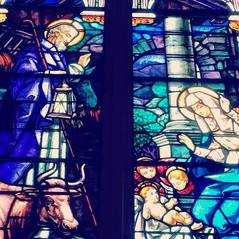
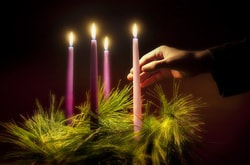
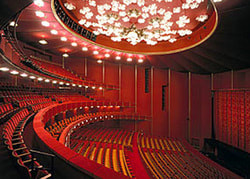
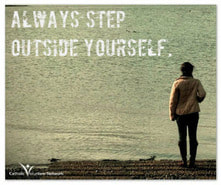
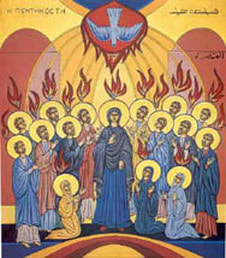
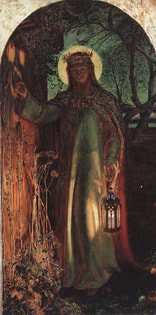

 RSS Feed
RSS Feed